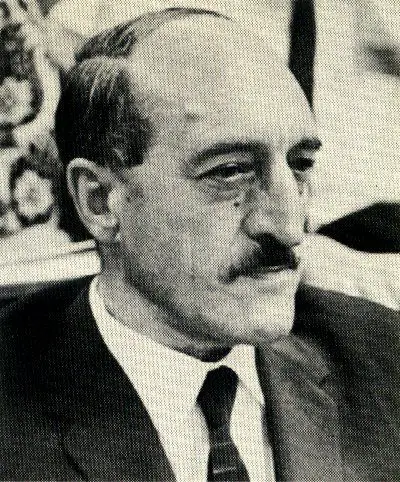Meyer Fortes
(1906 - 1983)

Meyer Fortes was born on April 25, 1906, in Britstown, Cape Province, South Africa, to Jewish parents of Lithuanian descent. His family background reflected the struggles of many Jewish immigrants who fled pogroms in Eastern Europe at the turn of the century, and he grew up in a multilingual household speaking Yiddish, English, and Afrikaans. He also received a traditional Jewish education that enabled him to read Hebrew.
Fortes studied at the University of Cape Town, where he earned a master’s degree in 1926, and later pursued doctoral work in psychology at the London School of Economics (LSE), receiving his Ph.D. in 1930. Initially trained as a psychologist, he published early studies on perception and intelligence, but soon shifted his attention to anthropology under the influence of leading figures such as Charles Seligman, Bronisław Malinowski, and Raymond Firth.
Between 1934 and 1937, Fortes conducted his first primary fieldwork among the Tallensi people of northern Ghana, a project that would become central to his career. His immersive research emphasized kinship, lineage, and ancestor worship, themes that he later explored in The Dynamics of Clanship Among the Tallensi (1945) and The Web of Kinship Among the Tallensi (1949). His studies demonstrated how kinship structures functioned as the foundation of social and political order. He also carried out research among the Ashanti, contributing to the Ashanti Social Survey during the mid-1940s.
Fortes collaborated with E.E. Evans-Pritchard on the influential volume African Political Systems (1940), which laid the theoretical groundwork for comparative political anthropology by analyzing segmentation, lineage, and balanced opposition in African societies. His later works, including Oedipus and Job in West African Religion (1959), Kinship and the Social Order (1969), and Time and Social Structure (1970), combined his psychological background with structural-functional analysis, advancing anthropological theory on religion, morality, and personhood.
After teaching at the London School of Economics and Oxford, Fortes was appointed William Wyse Professor of Social Anthropology at Cambridge University in 1950, a position he held until his retirement in 1973. He trained a generation of anthropologists and played a central role in establishing Cambridge as a leading center for social anthropology. During World War II, he also served in British army intelligence in West Africa.
Fortes emphasized the importance of rigorous fieldwork integrated with theoretical analysis, a hallmark of British structural-functionalism throughout his career. He was committed to anthropology’s ethical responsibilities, particularly in opposing racial discrimination, and he frequently highlighted the universal values revealed through cross-cultural study.
Meyer Fortes died on January 27, 1983, in Cambridge, England. His legacy endures in the study of kinship, political anthropology, and comparative religion, where his insights remain foundational.
Sources: “Meyer Fortes,” Encyclopaedia Britannica.
“Meyer Fortes,” New World Encyclopedia.
“Meyer Fortes,” Royal Anthropological Institute.
Frank A. Salamone, “Fortes, Meyer (1906–1983),” Encyclopedia of Anthropology.
“Meyer Fortes (Anthropologist),” Anthroholic.
Photo: Public domain.


